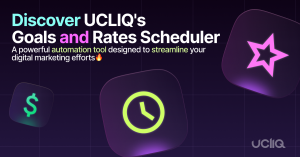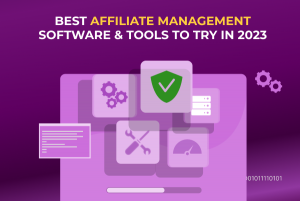The Ultimate Guide to Skyrocketing Your Business with KPI and Big Data Analytics
Do you want to run your business effectively? Learn how to apply KPI and Big Data Analytics to improve your outcomes.
If you have ever run a business, you definitely know how valuable data can be. It is nearly unattainable to make big moves and invest in development if you do not keep track of manifold details impacting your business.
And since companies continue to build up new ways of driving traffic, the amount of information received and needed for analysis only grows.
Needless to say, in the rapidly evolving tech world, using data to manage your workflow is the new standard. If you don’t use data to navigate your business, you are likely to miss a chance to propel your company into the future!
Fortunately, the advances in big data analytics in marketing can grow your business faster than ever before. Let’s have a closer look.
Why knowing big data performance metrics in business is a must

To a large extent, the ever-increasing data in terms of volume, diversity, speed, and complexity refers to the term big data.
Big data is generated around customers and their online activity, including online purchases, website clicks, social media actions, geo-location, etc. In other words, customers create new data at every step they take online.
And the more data you have as a vendor, the more chance there is to unearth useful insights to better promote your offerings.
However, the amount of big data usually makes it impossible to apply standard analysis methods and requires complicated analytics based on:
- Data mining to find patterns and correlations
- Smart algorithms to build models and predict results
- Machine learning to manage historical and real-time data
- Text analytics and natural language processing to read texts and perceive speech
The benefits of proper and timely KPI big data analytics for business may include more effective marketing, new revenue streams, better customer relationships, and improved operational efficiency.
With a sound strategy, these benefits can provide peerless advantages to outperform competitors.
What are KPIs in business? And why should you keep your eye on them?

Another significant aspect of big data in business is that it lets us know whether we are thriving or failing and to what extent. In this regard, knowing your KPI is critical to understanding how to approach data and use insights to improve your outcomes.
It’s interesting! A KPI refers to a key performance indicator that measures how well your company achieves a particular plan or objective. There are KPIs for every aspect of business: financial, marketing, sales, or operational.
In fact, there are dozens of business big data KPI metrics. And the types of them you should keep your eye on highly depend on the goals you set.
Nevertheless, there are several fundamental metrics that you always need to pay attention to to make suitable adjustments to your overall strategy and budget.
1. Number of Conversions
A conversion takes place when a customer completes a specific action: makes a purchase, downloads an app, fills in a form, etc. The higher the conversion rate, the more successful your marketing campaigns are.
2. Customer Lifetime Value (CLV)
The lifetime value refers to how much revenue an average customer can generate over time. Increasing the CLV metric enables you to enhance connections with your customers and improve their satisfaction.
3. Cost of Customer Acquisition (CoCA)
The acquisition cost implies the amount you need to spend to drive a new customer. For example, let’s say you spent $100,000 on marketing in a month and acquired ten new customers that month, then your cost of acquisition would be $10,000.
4. Return on Investment (ROI)
Return on investment refers to the amount of money you get compared to initial expenses. ROI enables you to prove that marketing does impact the company’s revenue. It’s also an excellent way to determine what to spend your marketing budget on.
5. Referral Traffic
Referral traffic means a KPI that can help you understand where your web visitors are coming from. This KPI is great to track because it enables you to know how customers find your business.
How we at UCLIQ operate data analytics KPI
Our platform provides fully-detailed information about all impressions, clicks, conversions, audit logs, and many other events. Thanks to this data, our clients can:
- Build statistical models
- Drill down particular traffic patterns
- Analyze sources of traffic
- Estimate the effectiveness of certain sub-sources
Moreover, our software enables all users to develop and teach various machine learning algorithms to weed out bot traffic, detect possible fraud, and prevent suspicious traffic sources from contaminating conversions.
For the convenience of all users, we have also designed a separate KPI dashboard section within our platform, where it is possible to see the progress and track the overall performance.
What big data KPIs you can check with our platform
1. Clicks
Clicks display the number of visits via the tracking link that went through the pre-lander and got to the offer, as well as the number of users for a specific time period.
2. Conversions
This indicator is one of the most important. Conversion is the number of site visitors who completed the necessary actions (registration, purchase, product card visit, subscription, etc.). This indicator depicts the number of visitors who completed the required action for a specific time period.
3. Revenue
Revenue refers to the total income, taking into account the declines and commissions.
4. Summary performance for the last 30 days
This indicator refers to the general statistics of your activity over the previous 30 days.
Get started with KPIs and Data Analytics for your business today
Nowadays, it is almost a crime not knowing how your business performs and what your customers want. Yes, unfortunately, data has become branchy and versatile, with its volume and complexity growing by leaps and bounds.
This, in turn, has made it impossible to apply outdated methods and conventional approaches to mine data and use it for the good of a business.
However, a wide array of tools on the market enable extracting multiple layers of data from marketing campaigns.
AI, machine learning, and smart algorithms long ago became an indispensable part of smart marketing platforms that perform the functions of a full-fledged analyst to cope with a variety of issues and needs.
And as a vendor, the best thing you can do for your business is to integrate the tools into your day-to-day workflow and enjoy valuable insights.
Feel like you’re missing out on important data that can help you in your business? Don’t hesitate to get in touch with us. We’re happy to help you resolve any issue you’re having with data analytics.



